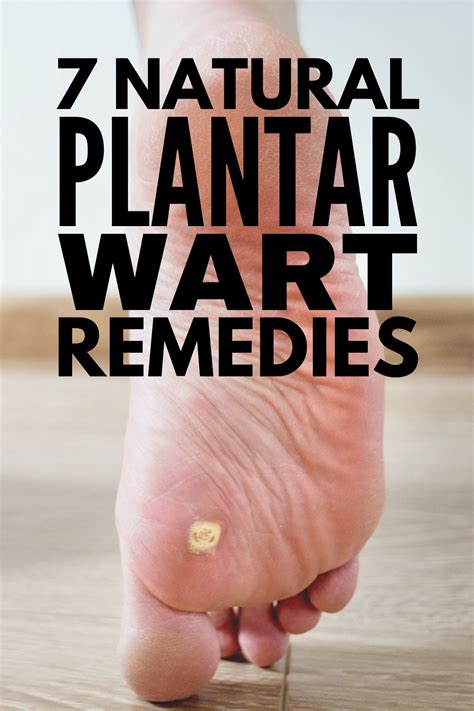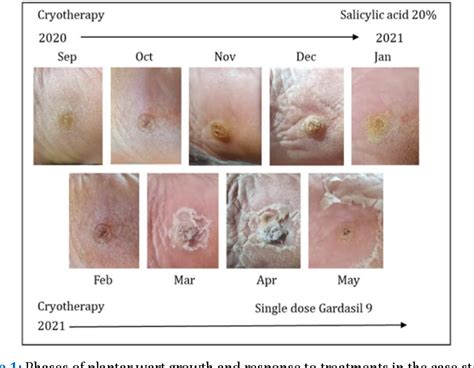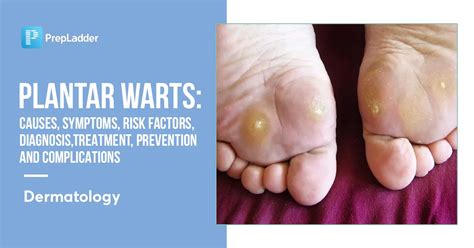Intro
Discover 5 effective ways to treat plantar warts, including home remedies, cryotherapy, and salicylic acid treatments, to relieve painful symptoms and promote healing for stubborn foot warts.
Plantar warts are a common and often frustrating issue for many people. These small, rough growths on the soles of the feet can be painful and embarrassing, making everyday activities like walking or standing uncomfortable. The importance of treating plantar warts lies not only in alleviating the discomfort they cause but also in preventing their spread to other parts of the body or to others. Understanding the various treatment options available is crucial for effectively managing and eliminating plantar warts. This article delves into five ways to treat plantar warts, exploring the benefits, mechanisms, and steps involved in each method.
The prevalence of plantar warts underscores the need for comprehensive and accessible treatment options. Given the potential for plantar warts to cause significant discomfort and disrupt daily life, it's essential for individuals to be informed about the latest and most effective treatment strategies. From home remedies to professional medical interventions, the range of treatments for plantar warts caters to different preferences and needs, ensuring that everyone can find a suitable approach to addressing this issue.
For those dealing with plantar warts, the primary concern often revolves around finding a treatment that is both effective and minimally invasive. The good news is that there are several approaches to treating plantar warts, each with its own set of advantages and considerations. Whether one prefers natural remedies, over-the-counter solutions, or medical procedures, understanding the available options is the first step towards successfully treating plantar warts and regaining comfort and confidence in one's daily activities.
Understanding Plantar Warts

Before diving into the treatment options, it's helpful to understand what plantar warts are and how they develop. Plantar warts are caused by the human papillomavirus (HPV), which enters the body through cuts or cracks in the skin on the soles of the feet. They can appear as small, flat, or raised growths and may cause discomfort or pain when walking or standing. Recognizing the signs and symptoms of plantar warts is crucial for early intervention and treatment.
Causes and Risk Factors
The causes and risk factors associated with plantar warts are essential considerations for prevention and treatment. Individuals who frequently walk barefoot, share personal care items, or have weakened immune systems are at a higher risk of developing plantar warts. Understanding these factors can help in adopting preventive measures and in making informed decisions about treatment options.Treatment Options for Plantar Warts

The treatment of plantar warts can vary significantly depending on the severity of the condition, the individual's health status, and personal preferences. Here are five ways to treat plantar warts, each with its own benefits and considerations:
-
Over-the-Counter Treatments: These include salicylic acid products that help dissolve the keratin protein that makes up the wart. Over-the-counter treatments are readily available and can be an effective first line of defense against plantar warts.
-
Cryotherapy: This involves freezing the wart using liquid nitrogen, causing the cells to die and eventually fall off. Cryotherapy is a common medical treatment for plantar warts and can be effective, although it may require multiple sessions.
-
Duct Tape Therapy: This home remedy involves covering the wart with duct tape for an extended period, except for a few hours daily when it's removed and the area is washed. The exact mechanism isn't fully understood, but it's believed to irritate the wart, stimulating the immune system to fight it off.
-
Cantharidin Treatment: Applied by a healthcare provider, cantharidin causes a blister to form under the wart, which eventually lifts off the wart. This method can be painful and may require multiple applications.
-
Laser Treatment: For more resistant cases, laser treatment can be used to target and destroy the wart tissue. This method can be more expensive and may require several sessions, but it offers a precise and potentially effective solution.
Benefits and Considerations
Each treatment option has its benefits and considerations. For instance, over-the-counter treatments are convenient and cost-effective but may not be as potent as medical treatments for more severe cases. Cryotherapy and laser treatment offer more immediate results but can be more expensive and may require multiple sessions. Understanding these factors is crucial for making an informed decision about the best course of treatment.Home Remedies for Plantar Warts

In addition to medical treatments, several home remedies can help manage and treat plantar warts. These remedies often focus on enhancing the body's natural ability to fight off the virus and can be used in conjunction with other treatments. Some popular home remedies include:
- Tea Tree Oil: Known for its antiviral properties, applying tea tree oil directly to the wart may help combat the HPV virus.
- Garlic: Garlic has natural antiviral and antibacterial properties that may help in treating plantar warts.
- Aloe Vera: Aloe vera can help soothe the discomfort caused by plantar warts and may aid in the healing process.
Prevention Strategies
Preventing plantar warts is often easier than treating them. Simple strategies such as wearing shoes in public areas, avoiding sharing personal care items, and keeping the feet clean and dry can significantly reduce the risk of developing plantar warts. Understanding and implementing these preventive measures is a crucial step in managing and reducing the occurrence of plantar warts.Medical Interventions for Plantar Warts

For more severe or persistent cases of plantar warts, medical interventions may be necessary. These can range from prescription medications to surgical removal of the wart. Medical interventions are typically considered when other treatments have failed or when the warts are causing significant discomfort or distress.
Surgical Removal
Surgical removal of plantar warts is usually a last resort but can be an effective way to eliminate the wart. This procedure involves cutting out the wart tissue and may require stitches. While it can be more invasive than other treatments, surgical removal offers a definitive solution for persistent plantar warts.Conclusion and Next Steps

Treating plantar warts effectively requires a comprehensive approach that considers the individual's health, the severity of the condition, and personal preferences. Whether through home remedies, over-the-counter treatments, or medical interventions, there are numerous options available for managing and eliminating plantar warts. By understanding these options and taking proactive steps towards prevention and treatment, individuals can regain comfort and confidence in their daily lives.
If you're dealing with plantar warts, it's essential to consult with a healthcare provider to determine the best course of treatment. With the right approach, it's possible to effectively manage and eliminate plantar warts, leading to healthier, happier feet.
What causes plantar warts?
+Plantar warts are caused by the human papillomavirus (HPV), which enters the body through cuts or cracks in the skin on the soles of the feet.
How are plantar warts treated?
+Plantar warts can be treated through various methods, including over-the-counter treatments, cryotherapy, duct tape therapy, cantharidin treatment, and laser treatment.
Can plantar warts be prevented?
+Yes, plantar warts can be prevented by wearing shoes in public areas, avoiding sharing personal care items, and keeping the feet clean and dry.
Are home remedies effective for treating plantar warts?
+Some home remedies, such as tea tree oil, garlic, and aloe vera, may help in managing and treating plantar warts, although their effectiveness can vary.
When should I consult a healthcare provider for plantar warts?
+You should consult a healthcare provider if your plantar warts are persistent, cause significant discomfort, or if you're unsure about the best course of treatment.
We invite you to share your experiences and questions about treating plantar warts in the comments below. Your insights can help others who are dealing with this issue, and together, we can explore the most effective strategies for managing and eliminating plantar warts. Don't forget to share this article with anyone who might benefit from this information, and let's work towards healthier feet for everyone.
